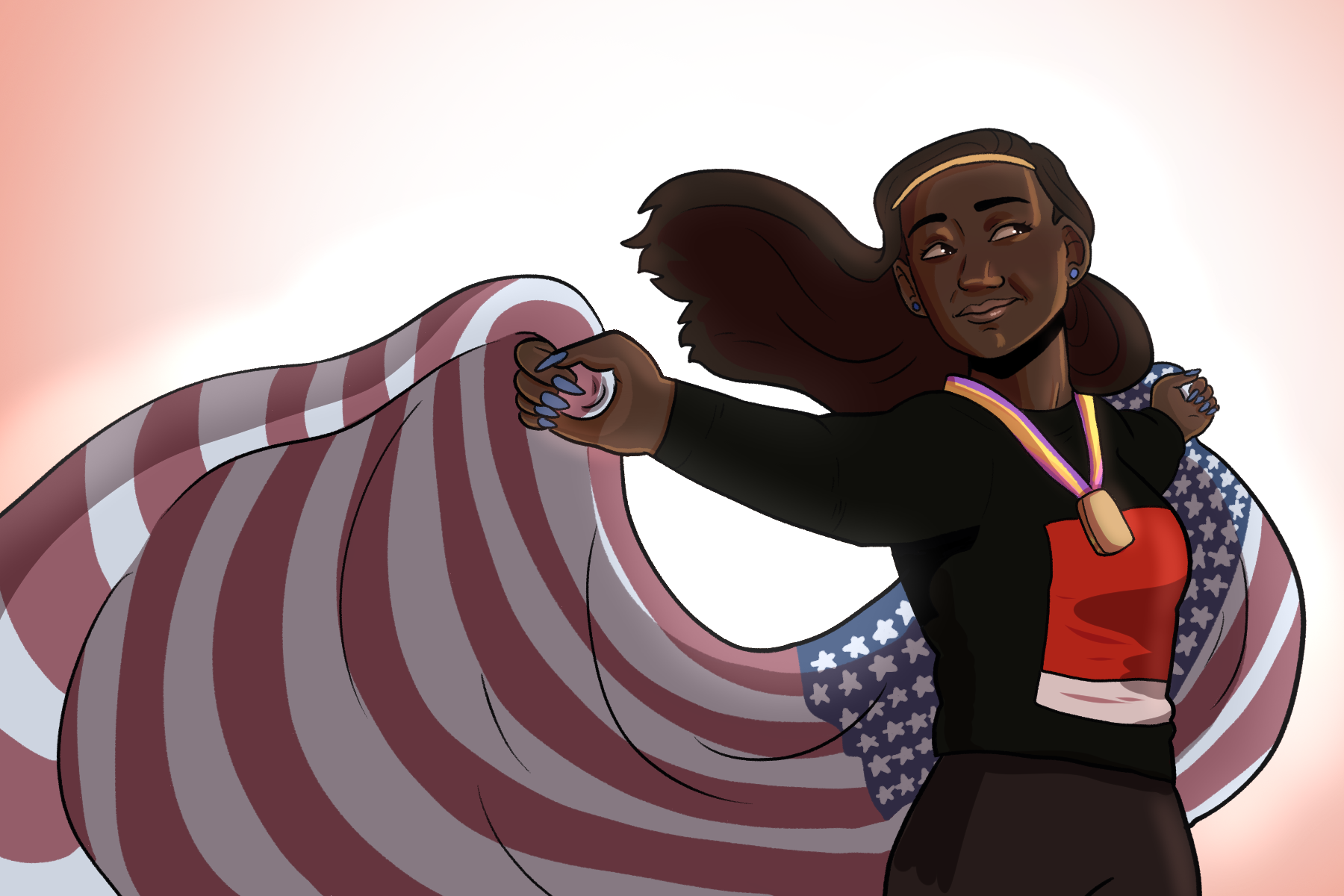It is dangerous to give birth in the United States. Yet, as conservative states fall over each other in a race to ban or restrict abortion access, more and more people are becoming parents. The United States leads the world in maternal mortality rates in first-world countries, and during the pandemic the situation for pregnant people became even more dangerous. 1,205 women died from maternal causes in 2021, a 40% increase from the previous year. A lack of access to health care means that many pregnant people, especially women of color, are at serious risk of death. In a country where the choice of becoming a parent is being systematically removed from people’s control, the rise of maternal deaths is a forewarning of the challenges young Americans should expect to face in the coming years.
For one incredible woman, the lack of support during her pregnancy challenges meant she and her child did not survive. In May 2022, Olympic athlete Tori Bowie, 32, was found deceased in her home. At eight months pregnant, she passed away alone in her home due to complications from childbirth. Taught by her grandmother to never give up, Tori became a rising star in track and field events during high school, placing her tiny hometown of Sand Hill, Mississippi on the map. Her incredible speed and talent earned her a scholarship to the University of Southern Mississippi. After turning pro in 2013, she quickly dominated professional women’s sprinting events. At the Olympics in Rio de Janeiro, Bowie was acclaimed as the fastest woman in the world as she sprinted to three Olympic medals. However, even the celebrity status and public accord that came along with her wins could not protect her, or her unborn child, from dying during childbirth.
Mothers in America are over ten times more likely to die during and after pregnancy than in any other developed country. The Centers for Disease Control (CDC) found that 84% of maternal deaths in the US are preventable. Every year, 32.9 American mothers die for every 100,000 live births. And if the mother is a woman of color, the death rate is even more distressing. The rate of Black maternity deaths is 2.6 times higher than the rate for white mothers, reaching the unspeakably high rate of 69.9 maternity deaths for every 100,000 live births in 2021. In Charlotte, North Carolina, Black mothers are twice as likely to die from childbirth complications than their white counterparts. And while several other factors are involved in the United States maternal death rate, the systematic racism in our healthcare system should be at the forefront of the conversation. Tori Bowie, the face of America during the Olympics, was a casualty of this racism. Being a black mother in the United States meant she and her child faced Sisyphean odds.
Other factors influencing the maternal mortality rate in the United States include the Medicaid coverage gap experienced by low-income people, mostly women of color, in 10 states. Medicare is a low-cost way to afford continuous health care, and states can voluntarily opt into it. The program is integral to paying for pre- and post-natal care for low-income parents. As of July 2023, Medicaid already pays for 42% of all births in the United States. But ten state governments are denying citizens federally subsidized healthcare by opting out of the program, choosing to let hundreds die from preventable causes.
Another factor is abortion bans. States with abortion bans are much less likely to have support systems in place for new parents and their children. Most of the states with abortion bans have not expanded Medicaid, creating a deadly coverage gap for pregnant people: no way to get rid of a pregnancy, and no way to deliver safely. One 2020 study even found that states that banned abortion increased their . Those states also have more people living below the poverty line. Living in poverty has been linked to a steep decline in maternal and family health. For example, Tori Bowie’s home state, Mississippi, turns a blind eye to its staggering child poverty rate of 27.9%, while gleefully boasting about being the state that challenged Roe v. Wade.
Implementing abortion bans has had another unforeseen outcome: the deficit of U.S. birthing centers. 8 of the 10 states with the most people living in maternity care deserts also had abortion bans. Pay, issues finding and recruiting staff and ambiguity around abortion laws have caused many clinics and centers in red states to close. That means over 6.9 million women live in an area with little to no access to obstetric care, birth centers, OB/GYNs and certified nurse midwives, putting their and their child’s lives at risk. People with pregnancy-related health issues may not notice signs of a problem right away, so it’s important that they have regular, consistent checkups. Pregnant people who do not receive prenatal care are over five times more likely to die than people who have regular health care visits. Finding a maternal care provider in the United States post-Roe is proving to be an insurmountable challenge for many people in red states.
Finding the best state in which to give birth, and therefore which states are viable to live in, can benefit parents in the long run. States that have expanded health care coverage offer more options for birthing care, such as midwives and paid family leave, and make an effort to root out systematic racism, are places in the U.S. where giving birth is less fraught with danger, especially for women of color. Having control and access to health care is instrumental in having healthy parents. And as states deny Medicaid and submit legalization limiting abortion access, more and more people are suffering the deadly consequences of those weaponized systems. No child should have to grow up without a mother due to preventable issues, but this is increasingly common in the United States.
















